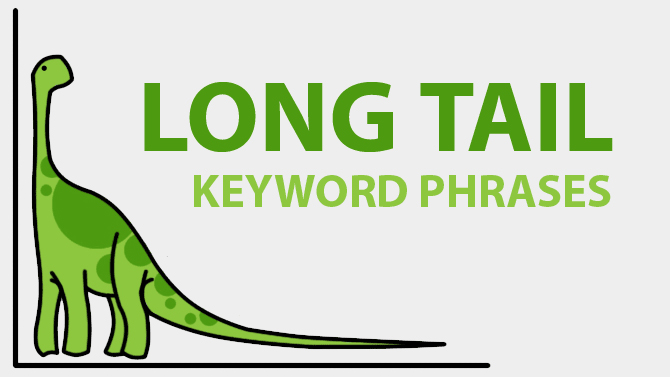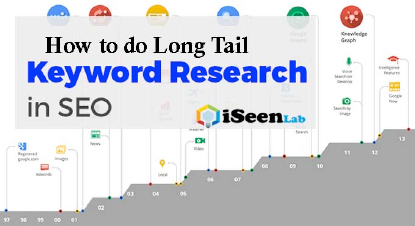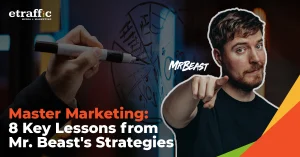![]() Posted by Cameron Francis
on
01 Apr , 2016
in
News Uncategorized
Posted by Cameron Francis
on
01 Apr , 2016
in
News Uncategorized

Everything is open for debate!
That’s kind of the mantra that governs the SEO world.
And one of the debates that never seems to simmer down is the relevance of long-tail keywords.

These are keywords that do not seem to have very impressive search volumes on Google Keyword Planner.
But apparently, they are from searchers who are close to making a purchase.
Recently, in the world of Search Engine Optimisation, someone figured out that long-tail keywords is where the money is at.
Just like every other SEO tactic, soon everyone was hopping on board.
Great tools that would help SEOs come up with profitable long tail keywords were invented ‑ LongTailPro comes to mind.

Everyone, from Neil Patel to Brian Dean to Yoast, seemed to be talking about long tail keywords, and how they are among the current most influential ranking factors.
A quick Google search will reveal lengthy guides on how to implement long tail keywords in your content strategy.

Every bit of information you’ll ever need is there:
- How to find the best long-tail keywords;
- How to implement them; and
- Why you should actually be focusing on long-tail keywords
I’ll forgive you if you happen to believe every single word on these guides.
These advocates of long-tail keywords are not nobodies from some unknown village in Iceland.
They are the who-is-who of the digital marketing world.

Neil Patel has created some of the most successful digital marketing agencies in the world.
Brian and Joost are considered authority leaders in the field of SEO.
Honestly, these 3 are great guys. They know their stuff and you should probably listen to them…
But on the issue of long-tail keywords, I have a counter opinion.
I’ll explain.
The Nature of Search Engine Optimisation
If there is anything you should learn about SEO, it is that tactics are always evolving.
What worked in 2011 will be laughable today.
What works today can become obsolete in the next few weeks.
The biggest disadvantage you can do to your business is get hung-up on some out-dated SEO strategy.

Another truth that you should note about SEO is that businesses will always try to increase the visibility of their websites on search engines. They will evolve their strategies as the SEO world evolves.
They will abandon the old in pursuit of whatever else will increase their visibility for the search terms that they care most about.
Aspiring for visibility for certain search words is not a bad thing in itself, if the search results actually contain what the searcher wants. However, what we are witnessing are broad term search results that do not actually reflect what the searcher wants.
The third truth about search engine optimisation is that the searcher is not a robot that remains undeterred by changes in the SEO world.

A search engine user who is currently looking for information will use one of two strategies to arrive at the best possible results:
- They start with broad search terms and refine the terms until they get results that are an exact match for what they are looking for.
- Knowing that the broad search terms will not yield what they are looking for, they mentally refine the search terms until they have a very specific search term that they can enter on Google.
The final truth about search engine terms is that Google is always doing things to improve the search experience of its users.

But in the case of long term keywords, the ‘improvements’ seem to actually hurt the user experience.
The biggest issue is that Google is populating broad keyword SERPs with all type of universal offerings such as images, news, videos, and knowledge graphs.
This pushes the relevant search result pages lower in the SERPs.
And if that wasn’t bad enough, we have Wikipedia, educational, and government pages that do not really fit the user intent.
Faced with all these, the search engine user has resulted to using much longer search phrases. A person looking to buy sports shoes may for example key in “Blue Reebok Sneakers from Amazon with Free Shipping”.
The phrases that users rely on to find information have become so large and diffused that they no longer deserve to be called long tail keywords.
In essence, long-tail keywords are dead.

The once idolised concept of paying attention to long tail keywords has become so commonplace that it does not deserve another guide or tutorial.
In fact, the whole SEO community is moving away from targeting certain keywords toward strategies that enhance their user experience.
I have a feeling that if we, as SEOs and digital marketers, ditch the idea of query length (short or long tail keywords), and instead focus our attention on creating thematic content, we can play a major role in ensuring that we provide users the specific content they want.
Stuffing your titles and Meta tags with keywords in the hope of ranking doesn’t work anymore.
Google abandoned keywords as part of its ranking factors a long time ago.

And even if the search engine still considered keywords, the user queries have become so long and complicated that your keywords wouldn’t come into play at all.
Where to go from Here?
Instead of killing your brain trying to figure out what the best or easiest keyword is, start looking at search engine optimisation from a higher perspective.
Here is an example.
If the phrase, “Who is the best choreographer in Queensland” is a long-tail keyword that users are looking for, create content around this theme without even thinking of including the exact phrase in your content.

Your work will be to write valuable content that help users find answers to these questions, and let Google figure out the rest.
The web is fast becoming saturated with content.
So if you want to get ahead in online marketing, forget about long tail keywords.
Instead, start focusing on delivering real solutions to your audience’s problems.






